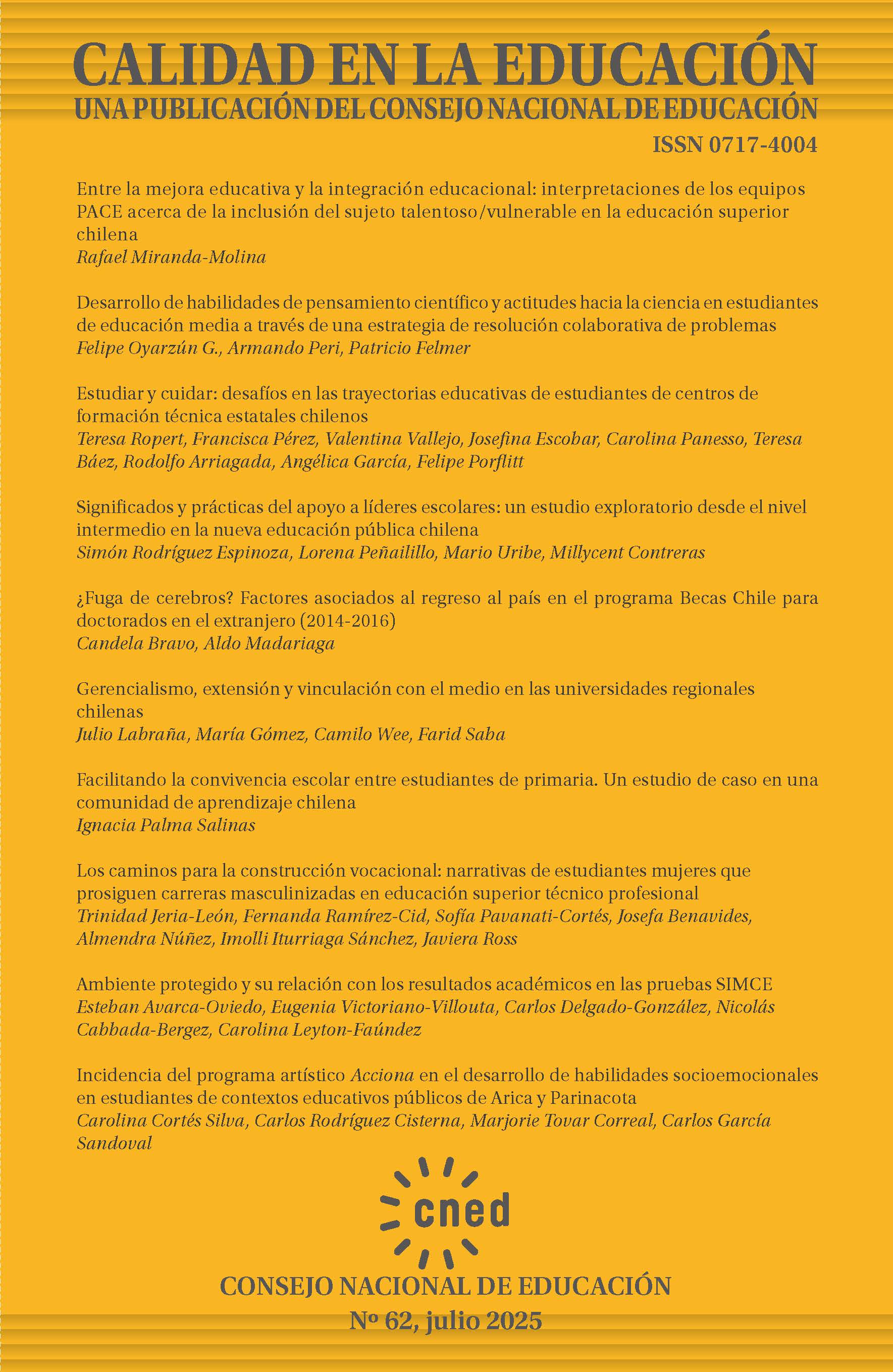Brain Drain? Factors Associated with Returning to the Country in the Becas Chile Program for Doctoral Studies Abroad (2014-2016)
DOI:
https://doi.org/10.31619/caledu.n62.1579Keywords:
Becas Chile, brain drain, human capital, PhD, doctorateAbstract
This study analyzes the factors associated with return or non-return to the country of Becas Chile recipients who pursued doctoral degrees abroad between 2014 and 2016. Three key variables are examined: gender, field of study (undergraduate and doctoral), and characteristics of the host country. Using a previously unpublished database, logistic regression models are applied to identify patterns of brain drain. The results show that areas of study in the natural sciences, medical and health sciences, agricultural sciences, and engineering and technology are strongly associated with a higher likelihood of remaining abroad. In contrast, recipients who pursued doctorates in social sciences and humanities are more likely to return.
Although no statistically significant relationship was found between gender and return, further analysis suggests that women in STEM and health fields are more likely to remain aboard. Moreover, scholarship recipients who studied in countries with coordinated market economies (continental Europe) or hierarchical economies (Latin America and the rest of the world) are more likely to return compared with those who studied in liberal economies (English-speaking countries), although this effect disappears when controlling for the GDP per capita of the destination country. These findings provide evidence to inform the debate and redesign of policy on the training of advanced human capital in Chile.
Downloads
Published
Issue
Section
License

This work is licensed under a Creative Commons Attribution 4.0 International License.
Authors retain their Copyright and only transfer a part of these to the journal, accepting the following conditions:
Authors keep their rights as authors and guarantee the right to the journal for the first publication of their work, which is simultaneously subject to the Creative Commons Attribution license allowing third parties to share the study accrediting the author and first publication in this journal.
Authors may adopt other non-exclusive license agreements for distribution of the version of the published work (e.g. inclusion in an institutional thematic file or publication in a monographic volume) accrediting initial publication in this journal.
Authors are allowed and recommended to share their work over the Internet (e.g. in institutional telematic files or their website) before and during the submission process, which may lead to interesting exchanges and increased citation of the published work. (See The effect of open access).

